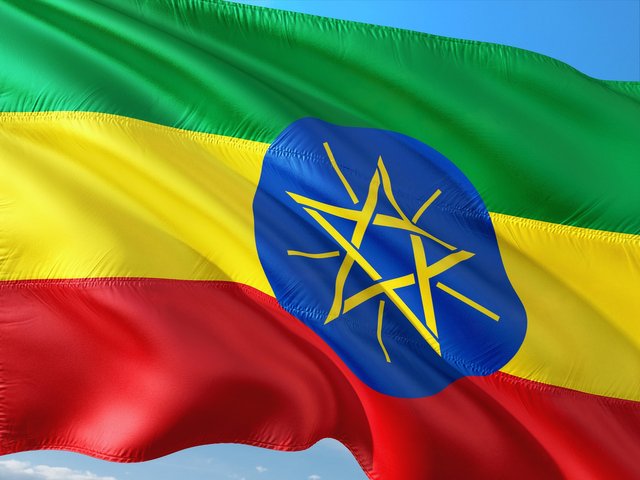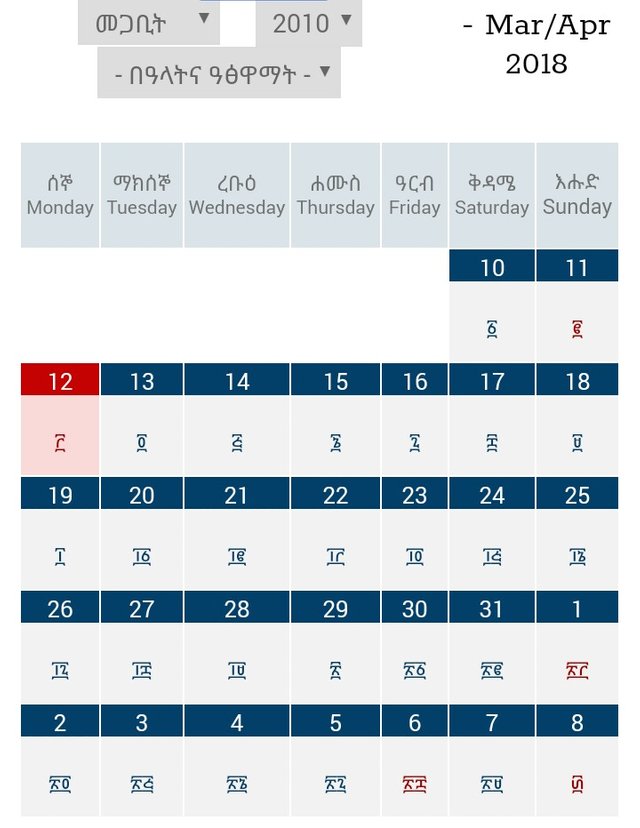How would it feel travelling back in time? Do you know that it is possible to pay a visit to this day, 8 years back? Wouldn’t it be fun living the last eight years over again and making changes or corrections to the mistakes you regret today? What if I introduce you to a place where you can live in 2010 while the rest of the world is in 2018? Join me to explore a country of over 80 million people, living behind time. Join me in an adventure to Ethiopia; the horn of Africa.

Do not think that the questions raised above are dream thoughts or mere wishful thinking for there is actually a place in Africa where the calendar presently is in 2010. Ethiopia is a unique and outstanding nation, not only in Africa but globally. Privileged to be among one of the ancient cities recorded in the Bible, it is a place that attracts so much importance to itself, most especially because of its unique calendar.
The Ethiopian calendar which is also used in Eritrea is a solar calendar, similar to the Egyptian Coptic calendar and influenced by calculations to determine the annunciation of the birth of Jesus Christ by the Coptic church and the Ethiopian Orthodox Tewahido church which makes the calendar 276 years behind the Coptic calendar and eight years behind the Gregorian calendar.
On the other hand, the Ethiopian calendar is a bit similar to the Julian calendar as it adds a leap year every four years without exception and begins a new year on September 11. Each year is divided into 12 months of 30 days. The extra five days are placed at the end of the year and known as Pagumen. In the leap year the extra day is added to these five days making the Pagumen of this year which is a period of six days.

Below are the months In the Ethiopian Calendar which is based on Metsehafe-Hissab (Book of Calculation)
| Ethiopian Calendar | World Calendar |
|---|---|
| Tir | January |
| Yekatit | February |
| Megabit | March |
| Miyaza | April |
| Ginbot | May |
| Sene | June |
| Hamle | July |
| Nehase | August |
| Pagume | September 6 |
| Meskerem | September 11 |
| Tikemet | October |
| Hidar | November |
| Teheses | December |
In line with the calendar as shown above, the Ethiopians have separate days to mark popular festivals and celebration. They celebrate the eve of the new year; Enthutatash which means the gift of jewel, the spring festival which is the end of the new year and others that are tabulated below
| Date | Ethiopian Holiday |
|---|---|
| January 7 | Christmas |
| March 13 | Id Al Fitir |
| April 25 | Good Friday |
| April 27 | Easter |
| July 17 | Birth of Prophet Mohammed |
| September 11 | New Year |
But one may wonder, is there any relationship or difference between the Ethiopian calendar with the Gregorian and Julian calendar? To find out, let us consider the origin and characteristics of the Gregorian and Julian calendars.
Historical literature proves that the calendars of the entire world are based on the work of the old Egyptian astronomers who discovered, as early as 3000 BC to 4000 BC that the solar or sidereal year lasted slightly less than 365 ¼ days
The Gregorian calendar was a reform of the Julian calendar. It was instituted in 1582 by Pope Gregory XIII, who the calendar was named after. The motive behind the review and adjustment of the Julian calendar was to bring the date for the celebration of Easter to the time of year in which it was celebrated when it was introduced by the early Church.
The Julian calendar had an error due to the date of the equinox according to the calendar drifting from the observed reality. Thus an error had been introduced into the calculation of the date of Easter. It was specified that all Christians should celebrate Easter on the same day, it took almost five centuries before virtually all Christians adopted the rules of the Church of Alexandria.
The Gregorian calendar is a solar calendar which consists of a 365 days year, whereas the Julian calendar, in certain years has a leap year or a leap day added to February. The Gregorian calendar omits a leap day in three of every 400 years, but in the Julian calendar, a leap year occurs every 4 years.
The leap day was included by doubling February 24 in the Julian Calendar, meanwhile the Gregorian Calendar did not change the date of the leap day.Although it has become customary to number the days from the beginning of the month,in the modern calendar, and February 29 considered as the leap day.
With the above facts, it is reasonable to conclude that the Ethiopian calendar took its root from either the Julian calendar or the Gregorian calendar.
But how has this uniqueness affected the people of Ethiopia?
Apart from the pride it gives to the people, there has been notable confusion by foreigners and tourist on exact time and date and this has made it difficult for foreigners to keep to appointments with the Ethiopians.
In conclusion, the Ethiopian calendar has not only made the nation unique when compared to every other country in the world, it has also marked the country as one which has contributed an ancient heritage to the entire world. So when next you wish to right a wrong or undo a past error, just take a trip to Ethiopia, the land behind time.
References
This is very enlightening..,
So are you saying the whole of ethiopia use the Ethiopian calender? Like in school, churches and government institutions..
How does this make life difficult or easy for ethiopians since the rest of the world is using something different.
Going to read more on this and i have resteemed your post also.
Downvoting a post can decrease pending rewards and make it less visible. Common reasons:
Submit
Yes, they do.
It can only be difficult for them when they visit another country. Imagine someone telling you, or writing today's date as 12/03/2010. You'd think the person is weird right?
Yea, you should. Thank you.
Downvoting a post can decrease pending rewards and make it less visible. Common reasons:
Submit
Really weird, feels like traveling back in time. Would love to connect with you more....,
as i find this article really interesting
Downvoting a post can decrease pending rewards and make it less visible. Common reasons:
Submit
Aiit dear, thanks for appreciating my article. Following you now
For more connection, join me on @Air-clinic via discord with this link https://discord.gg/rqded5m.
Downvoting a post can decrease pending rewards and make it less visible. Common reasons:
Submit
Wow... This is very enlightening....
If I go to Ethopia today so, I would find it a little hard to adjust o...
Everything is just so different...
Nice one...
Downvoting a post can decrease pending rewards and make it less visible. Common reasons:
Submit
Lol, it's scary though!
8 years, way too much
Downvoting a post can decrease pending rewards and make it less visible. Common reasons:
Submit
I need to visit Ethiopia this is fascinating like seriously.... @jeline thanks alot how would I have known this
Downvoting a post can decrease pending rewards and make it less visible. Common reasons:
Submit
Lol, we'd go together, join steemit, then come back to Nigeria to become whales,,lol
Downvoting a post can decrease pending rewards and make it less visible. Common reasons:
Submit
Yes oooooo @jeline Your head is there
Downvoting a post can decrease pending rewards and make it less visible. Common reasons:
Submit
@abuja-steem just upvoted this post. Help us to do more by upvoting this comment
Downvoting a post can decrease pending rewards and make it less visible. Common reasons:
Submit